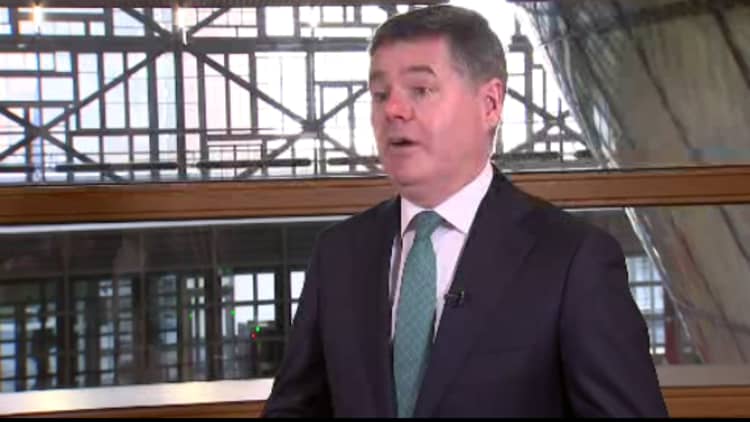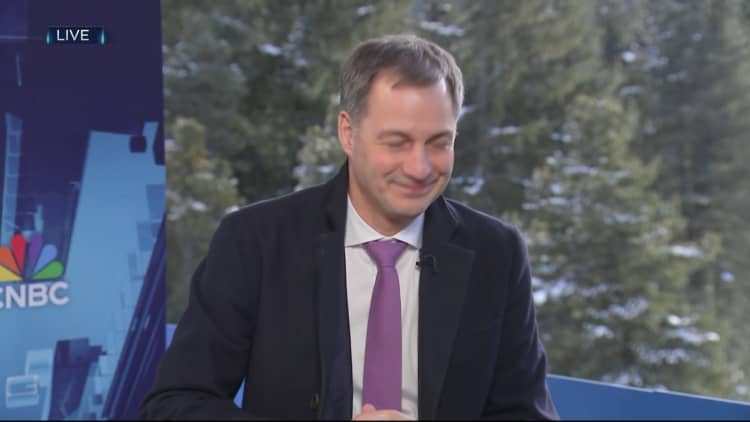Germany rules out spending ‘more and more money’ as Europe hopes to avoid subsidy race with the U.S.
German Federal Minister of Finance Christian Lindner (L) and French Minister of the Economy, Finance and Recovery Bruno Le Maire (R) both criticized the U.S. inflation reduction act for discriminating against European companies.
Thierry Monasse | Getty Images News | Getty Images
BRUSSELS — The European Union cannot and will not stump up increasing amounts of new cash to deal with a green subsidy race that’s heating up on both sides of the Atlantic, according to Germany’s top finance official.
European Union officials have been embroiled in tense discussions over how to make the region more competitive in the wake of the U.S. Inflation Reduction Act, also referred to as IRA.
The American legislation was approved by U.S. lawmakers in August and includes $369 billion in spending on climate and energy policies.
Among other aspects, it provides tax credits to consumers who buy electric cars that were made in North America — thus meaning it would make European-made EVs less attractive to drivers as they would likely be more expensive.
But, according to Christian Lindner, the German finance minister, the answer for the 27-member EU bloc to boost competitiveness is not via more public spending.

Speaking to CNBC in Brussels Tuesday, he said the focus for the EU should be on “the supply side of our economies, modernizing our labor markets for example.”
“We need a better quality of public sector investments, not more quantity of public sector investments,” he said.
The heads of state of the EU agreed last week to relax state aid rules to allow “for targeted, temporary and proportionate support to be deployed speedily, including via tax credits, in those sectors that are strategic for the green transition and are adversely impacted by foreign subsidies or high energy prices.”
However, there is concern among smaller European economies that Germany might create distortions across the EU’s single market — where goods and people move freely — given it has more fiscal leg room than other governments to support key industries.
Belgian Prime Minister Alexander de Croo raised this specific concern last month. “Belgium is a small market, very open economy, Germany is a big market. If this becomes a race of who has the deepest pockets we are all going to lose and it would lead to a subsidy war with the United States,” de Croo told CNBC on the sidelines of the World Economic Forum in Davos, Switzerland.

In a letter to member states in January, the EU’s competition chief, Margrethe Vestager, said that 53% of the state aid approved in the EU since 2020 was disbursed by Germany. France came second, representing 24% of the total state support.
Analysts at consultancy group Eurasia said in a note citing European officials last week that some member states “are more afraid of German than US money.”
When asked about his plans for state aid, Germany’s Lindner said: “I can assure all member states that Germany will keep a fair level playing field and I invite colleagues to consider with us measures [on] how to boost competitiveness without spending more and more money.”
“We can’t afford entering a competition with the United States [on] who’s able to pay more subsidies, who can afford more public sector spending,” Lindner said. The U.S. is an important trade and political partner to Germany and the broader EU, despite current concerns over greens subsidies.
“Besides that, our above 800 billion euros ($860 billion) Generation EU program offers more public sector investment than the U.S. Inflation Reduction Act,” Lindner said, referencing the EU’s centerpiece 800 billion euro recovery program that targets economic support after the coronavirus pandemic.
For all the latest World News Click Here
For the latest news and updates, follow us on Google News.

